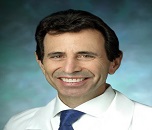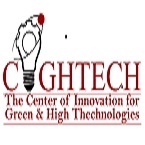Theme: Advancements in Gastrointestinal Therapeutics-Hepatitis and Liver Disease Management
WORLD GASTROENTEROLOGY 2024
We are excited to invite you to the 18th World Congress on Gastroenterology - Therapeutics & Hepatology, scheduled to take place on May 30-31, 2024. This prestigious conference will bring together leading experts, researchers, clinicians, and industry professionals from around the world to share their knowledge and latest research findings in the field of gastroenterology and hepatology. The two-day event will feature a diverse and comprehensive program that includes keynote presentations, plenary sessions, interactive workshops, and poster presentations. Participants will have the opportunity to explore cutting-edge advancements in gastrointestinal therapeutics, hepatic diseases management, and emerging technologies in gastroenterology.The conference will also cover topics such as inflammatory bowel disease, gastrointestinal oncology, hepatocellular carcinoma, liver transplantation, and gastroesophageal reflux disease. Additionally, there will be sessions dedicated to discussing nutrition's role in gastrointestinal health, the gut microbiome, and personalized medicine in gastroenterology. Furthermore, this congress will offer valuable networking opportunities, fostering collaboration and knowledge exchange among attendees. The vibrant location chosen for this event will provide a perfect backdrop for professional development and cultural experiences. We look forward to welcoming you to the 18th World Congress on Gastroenterology - Therapeutics & Hepatology in May 2024, where together, we will contribute to advancements in gastroenterological research and patient care on a global scale.
Session on Advancements in Gastrointestinal Therapeutics
Advancements in Gastrointestinal Therapeutics is an engaging subject that delves into the latest breakthroughs in the treatment of various gastrointestinal disorders. This interdisciplinary domain explores cutting-edge pharmacological and non-pharmacological interventions that have revolutionized patient care in gastroenterology. The subject emphasizes the development of novel therapeutic agents, precision medicine approaches, and personalized treatment plans tailored to individual patient needs. Moreover, it discusses the integration of advanced technologies, such as targeted drug delivery systems and innovative endoscopic techniques, in optimizing therapeutic outcomes for gastrointestinal conditions. Additionally, the conference highlights the role of artificial intelligence and data analytics in predicting treatment responses and enhancing treatment efficacy. By convening leading gastroenterologists, researchers, and pharmaceutical experts, the conference on Advancements in Gastrointestinal Therapeutics fosters interdisciplinary discussions and knowledge exchange. This subject aims to accelerate progress in gastroenterological therapeutics, improve patient outcomes, and shape the future of gastrointestinal medicine.
Session on Hepatitis and Liver Disease Management: Innovations in Diagnosis and Treatment
Hepatitis and Liver Disease Management: Innovations in Diagnosis and Treatment is a captivating subject that focuses on the latest advancements in managing hepatitis and liver diseases. This interdisciplinary field explores cutting-edge diagnostic techniques, such as non-invasive liver imaging and serological markers, facilitating early detection and accurate staging of liver diseases. The subject emphasizes the role of innovative antiviral therapies, immunomodulators, and direct-acting antivirals in effectively managing viral hepatitis and improving patient outcomes. Moreover, it discusses the emerging approaches in managing non-viral liver diseases, including non-alcoholic fatty liver disease (NAFLD), non-alcoholic steatohepatitis (NASH), and autoimmune liver disorders. Additionally, the conference highlights the impact of precision medicine and personalized treatment strategies in optimizing care for patients with different liver disease etiologies. By convening leading hepatologists, researchers, and healthcare professionals, the conference on Hepatitis and Liver Disease Management fosters interdisciplinary discussions and knowledge exchange. This subject aims to accelerate progress in liver disease management, reduce disease burden, and enhance the quality of life for individuals affected by these conditions.
Session on Personalized Approaches in Inflammatory Bowel Disease Management
Personalized Approaches in Inflammatory Bowel Disease Management is a compelling subject that delves into tailored treatment strategies for patients with inflammatory bowel diseases (IBD). This interdisciplinary domain explores individualized approaches to diagnosis, therapy, and monitoring based on patients' unique disease characteristics and responses to treatment. The subject emphasizes the role of biomarkers, genetic profiling, and advanced imaging techniques in predicting disease progression and treatment outcomes. Moreover, it discusses the use of biologic agents and immunomodulators as targeted therapies, offering better disease control and improved quality of life for IBD patients. Additionally, the conference highlights the importance of shared decision-making between healthcare providers and patients, considering patient preferences and goals in disease management. By convening leading gastroenterologists, researchers, and patient advocates, the conference on Personalized Approaches in Inflammatory Bowel Disease Management fosters interdisciplinary discussions and knowledge exchange. This subject aims to promote patient-centric care, optimize treatment efficacy, and pave the way for precision medicine in IBD management.
Session on Minimally Invasive Techniques in Gastrointestinal Endoscopy
Minimally Invasive Techniques in Gastrointestinal Endoscopy is an engaging subject that explores cutting-edge advancements in less invasive procedures for diagnosing and treating gastrointestinal conditions. This interdisciplinary field delves into the latest endoscopic techniques, such as endoscopic mucosal resection (EMR), endoscopic submucosal dissection (ESD), and endoscopic retrograde cholangiopancreatography (ERCP), which allow for precise and targeted interventions. The subject emphasizes the benefits of minimally invasive endoscopy, including reduced patient discomfort, shorter recovery times, and lower risks of complications. Moreover, it discusses the integration of advanced imaging technologies, such as virtual chromoendoscopy and confocal laser endomicroscopy, in enhancing diagnostic accuracy during endoscopic procedures. Additionally, the conference highlights the use of therapeutic endoscopy for conditions like early-stage gastrointestinal cancers and strictures. By convening leading gastroenterologists, endoscopists, and researchers, the conference on Minimally Invasive Techniques in Gastrointestinal Endoscopy fosters interdisciplinary discussions and knowledge exchange. This subject aims to promote the adoption of these advanced techniques, improve patient outcomes, and further refine the art of gastrointestinal endoscopy.
Session on Targeted Therapies for Gastrointestinal Oncology
Targeted Therapies for Gastrointestinal Oncology is an intriguing subject that focuses on the latest advancements in precision medicine for treating gastrointestinal cancers. This interdisciplinary field explores innovative therapies that specifically target cancer cells' unique molecular features, allowing for more effective and less toxic treatment options. The subject emphasizes the use of targeted agents, such as monoclonal antibodies, tyrosine kinase inhibitors, and immune checkpoint inhibitors, in managing various gastrointestinal malignancies, including colorectal cancer, gastric cancer, and pancreatic cancer. Moreover, it discusses the importance of biomarker testing and genomic profiling to identify patients who are most likely to benefit from targeted therapies. Additionally, the conference highlights the potential for combination therapies and immunotherapies to further enhance treatment outcomes in gastrointestinal oncology. By convening leading oncologists, researchers, and pharmaceutical experts, the conference on Targeted Therapies for Gastrointestinal Oncology fosters interdisciplinary discussions and knowledge exchange. This subject aims to accelerate progress in precision oncology, improve patient survival rates, and provide hope for individuals affected by gastrointestinal cancers.
Session on Gut Microbiome and Gastrointestinal Health: Implications for Therapy
Gut Microbiome and Gastrointestinal Health: Implications for Therapy is an engaging subject that explores the intricate relationship between the gut microbiome and digestive well-being. This interdisciplinary domain delves into the emerging field of research surrounding the gut microbiota's impact on gastrointestinal health and disease. The subject emphasizes the role of the gut microbiome in modulating the immune system, metabolizing nutrients, and influencing host physiology. Moreover, it discusses how disruptions in the gut microbial balance, known as dysbiosis, may contribute to various gastrointestinal disorders, such as inflammatory bowel disease, irritable bowel syndrome, and colorectal cancer. Additionally, the conference highlights the potential of therapeutic interventions, such as prebiotics, probiotics, and fecal microbiota transplantation, in restoring a healthy gut microbiome and improving gastrointestinal health. By convening leading gastroenterologists, microbiologists, and researchers, the conference on Gut Microbiome and Gastrointestinal Health fosters interdisciplinary discussions and knowledge exchange. This subject aims to uncover new therapeutic avenues, optimize treatment strategies, and promote personalized approaches in gastrointestinal therapy based on the gut microbiome's influence.
Session on Global Strategies for Hepatitis C Eradication
Global Strategies for Hepatitis C Eradication is a critical subject that addresses the worldwide efforts to eliminate hepatitis C as a public health threat. This interdisciplinary domain explores comprehensive strategies and initiatives implemented by various countries and international organizations to combat the hepatitis C virus (HCV) on a global scale. The subject emphasizes the importance of expanding access to screening, testing, and treatment to diagnose and cure HCV-infected individuals, particularly in vulnerable populations. Moreover, it discusses the use of direct-acting antiviral medications and the role of innovative treatment models, such as task-shifting and community-based interventions, in reaching treatment targets. Additionally, the conference highlights the significance of preventive measures, harm reduction strategies, and needle exchange programs to prevent new HCV infections. By convening leading hepatologists, policymakers, and global health experts, the conference on Global Strategies for Hepatitis C Eradication fosters interdisciplinary discussions and knowledge exchange. This subject aims to accelerate progress in HCV elimination, reduce disease burden, and achieve the ambitious goal of a hepatitis C-free world.
Session on Digital Health and Artificial Intelligence in Gastroenterology
Digital Health and Artificial Intelligence in Gastroenterology is an intriguing subject that explores the transformative impact of digital technologies and AI in the field of gastroenterology. This interdisciplinary domain delves into how advanced digital health solutions and AI-driven algorithms are revolutionizing disease diagnosis, management, and patient care. The subject emphasizes the integration of telemedicine, mobile health applications, and wearable devices in remote patient monitoring and healthcare delivery. Moreover, it discusses the use of AI-powered image analysis and pattern recognition in aiding gastroenterologists with more accurate and efficient diagnosis, particularly in endoscopy and pathology. Additionally, the conference highlights the potential of AI-driven predictive modeling and data analytics in identifying disease trends and optimizing treatment outcomes. By convening leading gastroenterologists, technologists, and AI researchers, the conference on Digital Health and Artificial Intelligence in Gastroenterology fosters interdisciplinary discussions and knowledge exchange. This subject aims to harness the full potential of digital health and AI innovations to enhance gastroenterological practice, improve patient outcomes, and shape the future of precision medicine.
Session on Nutrition and Digestive Health: From Science to Practice
Nutrition and Digestive Health: From Science to Practice is a compelling subject that explores the profound impact of dietary choices on gastrointestinal well-being. This interdisciplinary domain delves into the latest scientific evidence linking nutrition to digestive health and disease prevention. The subject emphasizes the role of various nutrients, dietary patterns, and probiotics in promoting a balanced gut microbiome and supporting optimal gastrointestinal function. Moreover, it discusses the impact of diet on common digestive disorders, such as irritable bowel syndrome, gastroesophageal reflux disease, and inflammatory bowel disease. Additionally, the conference highlights the translation of scientific research into practical dietary recommendations for individuals, healthcare providers, and public health initiatives. By convening leading nutritionists, gastroenterologists, and researchers, the conference on Nutrition and Digestive Health fosters interdisciplinary discussions and knowledge exchange. This subject aims to bridge the gap between scientific evidence and dietary practices, empowering individuals to make informed nutritional choices for better digestive health and overall well-being.
Session on Cirrhosis and Portal Hypertension: Current Management Strategies
Cirrhosis and Portal Hypertension: Current Management Strategies is a significant subject that delves into the latest advancements in the management of cirrhosis and its complications, particularly portal hypertension. This interdisciplinary domain explores the comprehensive approach to diagnose, prevent, and treat the underlying causes and manifestations of cirrhosis. The subject emphasizes the implementation of evidence-based therapeutic interventions to manage portal hypertension, including beta-blockers, non-selective beta-blockers, and vasoconstrictors. Moreover, it discusses the role of interventional radiology techniques, such as Transjugular intrahepatic portosystemic shunt (TIPS), in reducing portal hypertension-related complications. Additionally, the conference highlights the importance of multidisciplinary care in cirrhosis management, involving hepatologists, gastroenterologists, interventional radiologists, and liver transplant specialists. By convening leading experts in the field, the conference on Cirrhosis and Portal Hypertension fosters interdisciplinary discussions and knowledge exchange. This subject aims to optimize patient outcomes, improve quality of life, and reduce morbidity and mortality associated with cirrhosis and its complications.
Session on GERD Management: From Lifestyle Modifications to Advanced Procedures
GERD Management: From Lifestyle Modifications to Advanced Procedures is an informative subject that addresses the comprehensive approach to managing gastroesophageal reflux disease (GERD). This interdisciplinary domain explores a spectrum of treatment strategies, ranging from lifestyle modifications to cutting-edge procedures, aimed at providing relief and improving patients' quality of life. The subject emphasizes the importance of lifestyle changes, including dietary modifications, weight management, and elevating the head of the bed, as initial measures to alleviate GERD symptoms. Moreover, it discusses the use of over-the-counter and prescription medications, such as proton pump inhibitors and H2 receptor blockers, in controlling acid reflux. Additionally, the conference highlights advanced GERD management options, including endoscopic therapies, radiofrequency ablation, and laparoscopic anti-reflux surgeries. By convening leading gastroenterologists, surgeons, and researchers, the conference on GERD Management fosters interdisciplinary discussions and knowledge exchange. This subject aims to provide clinicians with a comprehensive toolkit for tailoring GERD management to individual patient needs, ensuring optimal outcomes and long-term symptom control.
Session on Pancreatic Disorders: Challenges in Diagnosis and Intervention
Pancreatic Disorders: Challenges in Diagnosis and Intervention is a critical subject that explores the complexities surrounding the diagnosis and management of various pancreatic conditions. This interdisciplinary domain delves into the multifaceted challenges faced by healthcare professionals in accurately diagnosing pancreatic disorders and implementing effective treatment strategies. The subject emphasizes the importance of advanced imaging modalities, such as endoscopic ultrasound (EUS) and magnetic resonance cholangiopancreatography (MRCP), in aiding the diagnosis of pancreatic diseases. Moreover, it discusses the challenges in distinguishing between benign and malignant pancreatic lesions, as well as the difficulties in detecting early-stage pancreatic cancer. Additionally, the conference highlights the evolving landscape of therapeutic interventions for pancreatic disorders, including endoscopic therapies, surgical techniques, and medical treatments. By convening leading pancreatic specialists, gastroenterologists, and oncologists, the conference on Pancreatic Disorders fosters interdisciplinary discussions and knowledge exchange. This subject aims to address the unique challenges in diagnosing and treating pancreatic diseases, fostering advancements to improve patient outcomes and quality of life.
Session on Updates in Irritable Bowel Syndrome Treatment and Research
Update in Irritable Bowel Syndrome (IBS) Treatment and Research is a dynamic subject that delves into the latest advancements in managing and understanding this prevalent gastrointestinal disorder. This interdisciplinary domain explores the evolving landscape of IBS research and the translation of scientific discoveries into effective treatment strategies. The subject emphasizes evidence-based approaches for symptom relief and improving patients' quality of life, including dietary modifications, gut-targeted therapies, and behavioral interventions. Moreover, it discusses the role of probiotics, prebiotics, and the gut-brain axis in IBS pathophysiology and treatment. Additionally, the conference highlights ongoing clinical trials and cutting-edge research aiming to unravel the underlying mechanisms of IBS and develop novel therapeutic options. By convening leading gastroenterologists, researchers, and patient advocates, the conference on Updates in Irritable Bowel Syndrome Treatment and Research fosters interdisciplinary discussions and knowledge exchange. This subject aims to enhance IBS management, foster new treatment paradigms, and ultimately provide better care for individuals living with this complex and often debilitating condition.
Session on Biologics and Immunomodulators in Gastrointestinal Diseases
Biologics and Immunomodulators in Gastrointestinal Diseases is an informative subject that focuses on the groundbreaking role of biologic agents and immunomodulatory therapies in managing various gastrointestinal disorders. This interdisciplinary domain explores the use of biologics and immunomodulators as targeted treatment options for inflammatory bowel disease (IBD), such as Crohn's disease and ulcerative colitis. The subject emphasizes the mechanism of action and efficacy of biologic agents, including anti-TNF agents, anti-integrins, and interleukin inhibitors, in controlling inflammation and inducing and maintaining remission in IBD patients. Moreover, it discusses the safety profile and monitoring of patients receiving these advanced therapies. Additionally, the conference highlights the potential applications of biologics and immunomodulators in other gastrointestinal conditions, such as refractory celiac disease and eosinophilic esophagitis. By convening leading gastroenterologists, immunologists, and pharmaceutical experts, the conference on Biologics and Immunomodulators in Gastrointestinal Diseases fosters interdisciplinary discussions and knowledge exchange. This subject aims to pave the way for precision medicine in gastrointestinal therapy, offering better disease control and improved outcomes for patients affected by these challenging disorders.
Session on Liver Transplantation: Advances and Outcomes
Liver Transplantation: Advances and Outcomes is an insightful subject that explores the latest advancements in liver transplantation and their impact on patient outcomes. This interdisciplinary domain delves into the evolving landscape of liver transplantation, from donor selection and surgical techniques to post-transplant management and long-term outcomes. The subject emphasizes the use of extended criteria donors, living donors, and split liver transplantation to expand the donor pool and improve transplant accessibility. Moreover, it discusses the advances in immunosuppressive therapies and personalized approaches to prevent graft rejection and improve graft survival rates. Additionally, the conference highlights the importance of multidisciplinary care in enhancing post-transplant outcomes, addressing complications, and improving the quality of life for transplant recipients. By convening leading transplant surgeons, hepatologists, and researchers, the conference on Liver Transplantation: Advances and Outcomes fosters interdisciplinary discussions and knowledge exchange. This subject aims to propel liver transplantation forward, offering hope to patients with end-stage liver disease and improving the overall success of this life-saving procedure.
Session on Pediatric Gastroenterology: Focus on Childhood Digestive Disorders
Pediatric Gastroenterology: Focus on Childhood Digestive Disorders is a vital subject that addresses the unique challenges and considerations in managing gastrointestinal conditions in children. This interdisciplinary domain delves into the diagnosis, treatment, and management of a broad spectrum of childhood digestive disorders. The subject emphasizes the importance of early detection and intervention in addressing gastrointestinal disorders specific to the pediatric population, such as pediatric inflammatory bowel disease, gastroesophageal reflux, and food allergies. Moreover, it discusses the role of nutritional support and dietary modifications in promoting growth and development in children with gastrointestinal conditions. Additionally, the conference highlights the impact of genetic and congenital factors in pediatric gastrointestinal diseases, guiding personalized treatment approaches. By convening leading pediatric gastroenterologists, nutritionists, and researchers, the conference on Pediatric Gastroenterology fosters interdisciplinary discussions and knowledge exchange. This subject aims to optimize care for young patients, improve their quality of life, and pave the way for advancements in pediatric gastrointestinal medicine.
Session on Therapies for Non-Alcoholic Fatty Liver Disease (NAFLD) and Non-Alcoholic Steatohepatitis (NASH)
Therapies for Non-Alcoholic Fatty Liver Disease (NAFLD) and Non-Alcoholic Steatohepatitis (NASH) are an essential subject that focuses on the management of these rapidly emerging liver disorders. This interdisciplinary domain delves into the latest therapeutic strategies and treatment options to address the growing burden of NAFLD and NASH. The subject emphasizes the need for lifestyle modifications, including diet and exercise, as the cornerstone of NAFLD and NASH management. Moreover, it discusses the potential of pharmacological interventions, such as insulin sensitizers, antioxidants, and lipid-lowering agents, to target underlying metabolic abnormalities and liver inflammation. Additionally, the conference highlights emerging and investigational therapies, including novel agents that target fibrosis and inflammation, offering potential breakthroughs in treating advanced stages of NASH. By convening leading hepatologists, researchers, and pharmaceutical experts, the conference on Therapies for Non-Alcoholic Fatty Liver Disease and Non-Alcoholic Steatohepatitis fosters interdisciplinary discussions and knowledge exchange. This subject aims to enhance the understanding and management of NAFLD and NASH, leading to improved patient outcomes and a potential reduction in liver-related morbidity and mortality.
Session on Esophageal Disorders: Emerging Therapeutic Options
Esophageal Disorders: Emerging Therapeutic Options is a captivating subject that explores the latest advancements in managing various esophageal conditions. This interdisciplinary domain delves into cutting-edge therapeutic options and interventions for esophageal disorders, including gastroesophageal reflux disease (GERD), Barrett's esophagus, esophageal motility disorders, and esophageal cancer. The subject emphasizes the potential of endoscopic therapies, such as radiofrequency ablation, endoscopic mucosal resection (EMR), and endoscopic submucosal dissection (ESD), in treating early-stage esophageal neoplasia and precancerous lesions. Moreover, it discusses the use of novel pharmacological agents, biologics, and immunomodulators in managing esophageal inflammatory and autoimmune disorders. Additionally, the conference highlights advances in surgical techniques, including minimally invasive and robotic-assisted procedures, for more precise and effective esophageal surgeries. By convening leading gastroenterologists, surgeons, and researchers, the conference on Esophageal Disorders: Emerging Therapeutic Options fosters interdisciplinary discussions and knowledge exchange. This subject aims to drive innovation in esophageal disorder management, offering hope for patients and potential improvements in their overall quality of life.
Session on Colorectal Cancer: Multidisciplinary Approaches to Care
Colorectal Cancer: Multidisciplinary Approaches to Care is a crucial subject that addresses the comprehensive and collaborative management of colorectal cancer. This interdisciplinary domain delves into the latest advancements in diagnosing, staging, and treating colorectal cancer through a multidisciplinary approach involving oncologists, surgeons, radiologists, pathologists, and other healthcare specialists. The subject emphasizes the importance of early detection and screening methods, such as colonoscopy and stool-based tests, in improving survival rates and treatment outcomes. Moreover, it discusses the integration of surgery, radiation therapy, and systemic therapies, including chemotherapy and targeted agents, in tailored treatment plans for colorectal cancer patients. Additionally, the conference highlights supportive care strategies to manage treatment side effects and enhance patients' quality of life. By convening leading experts across disciplines, the conference on Colorectal Cancer: Multidisciplinary Approaches to Care fosters interdisciplinary discussions and knowledge exchange. This subject aims to provide a holistic and patient-centered approach to colorectal cancer care, offering hope and improved prognosis for individuals affected by this disease.
Session on Management of Biliary Tract Diseases: Recent Developments and Challenges
Management of Biliary Tract Diseases: Recent Developments and Challenges is an informative subject that explores the latest advancements in diagnosing and treating disorders affecting the biliary tract. This interdisciplinary domain delves into the complexities and emerging therapeutic options for diseases such as gallstones, cholangitis, biliary strictures, and biliary tract cancers. The subject emphasizes the use of advanced imaging modalities, including magnetic resonance cholangiopancreatography (MRCP) and endoscopic retrograde cholangiopancreatography (ERCP), for accurate diagnosis and assessment of biliary tract conditions. Moreover, it discusses the evolving landscape of therapeutic interventions, such as endoscopic biliary stenting, percutaneous drainage procedures, and minimally invasive surgical techniques, to manage complex biliary disorders. Additionally, the conference highlights the challenges in treating biliary tract diseases, including recurrent stones and complications in biliary malignancies. By convening leading gastroenterologists, hepatologists, and surgeons, the conference on Management of Biliary Tract Diseases fosters interdisciplinary discussions and knowledge exchange. This subject aims to improve patient outcomes, optimize biliary disease management, and shape the future of biliary tract care.
World Gastroenterology-2024 highlights the theme “Advancements in Gastrointestinal Therapeutics-Hepatitis and Liver Disease Management”. It fundamentally focused on the latest technologies and explores the new research with all the sectors of gastroenterology.
Gastroenterology is an ever-advancing branch of internal medicine dealing with multiple ailments and different conditions of the gastrointestinal tract. It’s expanding knowledge and treatment with the advanced technologies adds a greater value in the GI market.
The worldwide transplantation market size was assessed at USD 23.5 billion out of 2022. Developing interest for novel tissue transplantation items and organ transplantation for the treatment of organ disappointment is a main consideration contributing toward development of the market.
Organ disappointment normally happens because of different factors like genuine injury, loss of blood, harming, drug misuse, leukaemia, sepsis, and other intense sicknesses. Interest for tissue and organ transplantation, predominantly kidney, heart, liver, and lungs, is high all around the world. Unfortunate dietary propensities, liquor utilization, absence of activity, and medication misuse are some driving reasons for organ disappointment. In this manner, interest for transplantation items is required to ascend soon.
Conference Highlights
- Advancements in Gastrointestinal Therapeutics
- Hepatitis and Liver Disease Management: Innovations in Diagnosis and Treatment
- Personalized Approaches in Inflammatory Bowel Disease Management
- Minimally Invasive Techniques in Gastrointestinal Endoscopy
- Targeted Therapies for Gastrointestinal Oncology
- Gut Microbiome and Gastrointestinal Health: Implications for Therapy
- Global Strategies for Hepatitis C Eradication
- Digital Health and Artificial Intelligence in Gastroenterology
- Nutrition and Digestive Health: From Science to Practice
- Cirrhosis and Portal Hypertension: Current Management Strategies
- GERD Management: From Lifestyle Modifications to Advanced Procedures
- Pancreatic Disorders: Challenges in Diagnosis and Intervention
- Updates in Irritable Bowel Syndrome Treatment and Research
- Biologics and Immunomodulators in Gastrointestinal Diseases
- Liver Transplantation: Advances and Outcomes
- Pediatric Gastroenterology: Focus on Childhood Digestive Disorders
- Therapies for Non-Alcoholic Fatty Liver Disease (NAFLD) and Non-Alcoholic Steatohepatitis (NASH)
- Esophageal Disorders: Emerging Therapeutic Options
- Colorectal Cancer: Multidisciplinary Approaches to Care
- Management of Biliary Tract Diseases: Recent Developments and Challenges
To share your views and research, please click here to register for the Conference.
To Collaborate Scientific Professionals around the World
| Conference Date | May 30-31, 2024 | ||
| Sponsors & Exhibitors |
|
||
| Speaker Opportunity Closed | |||
| Poster Opportunity Closed | Click Here to View | ||
Useful Links
Special Issues
All accepted abstracts will be published in respective Our International Journals.
Abstracts will be provided with Digital Object Identifier by























